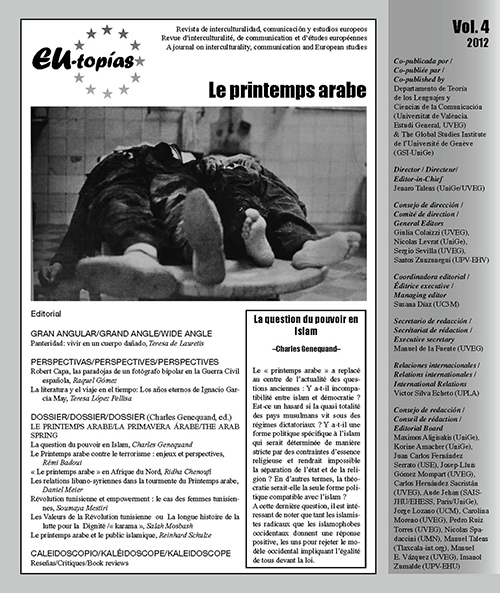La question du pouvoir en Islam
DOI:
https://doi.org/10.7203/eutopias.0.19769Keywords:
Politico-military sphere, religious authority, Islam, Theocracy, Arab revolts Abstract
Abstract
Historically, Islam has always established a clear distinction between the politico-military and the religious authority of ulamas, as well as a de facto collusion between the two. Nonetheless, it has maintained a sense of nostalgia for a mythical state in which the two types of power were united in one person, the caliph. This has inhibited the emergence of a true state with defined governance structures and mechanisms of devolution. Autocratic regimes from independence broke this traditional balance, trying to put aside the religious factor (Tunisia, Egypt), or by imposing a theocracy (Saudi Arabia, Iran). The Arab uprisings have undoubtedly opened a new era in the definition of power in the Islamic world. It is currently unclear whether it will lead to the establishment of a new equilibrium or to a prolonged period of anarchy.
 Downloads
Downloads
 References
References
Ibn Khaldun, Le Livre des Exemples I. Autobiographie, Muqaddima, texte traduit, présenté et annoté par Abdesselam Cheddadi, Bibliothèque de la Pléiade, Paris 2002.
Laoust Henri, Le Califat dans la doctrine de Rashid Rida, Beyrouth 1938.
Mawerdi, Les Statuts gouvernementaux, trad. E. Fagnan, Alger 1915 et rééditions.
Downloads
Published
How to Cite
-
Abstract174
-
PDF (Français )72
Issue
Section
License
![]()
The authors conserve the copyright. All content published in EU-topías. Journal of interculturality, Communication, and European Studies are subject to the license Creative Commons Attribution-NonCommercial-ShareAlike 4.0 license. The full text of the license can be found at <http://creativecommons.org/licenses/by-nc-sa/4.0>
They may be copied, used, disseminated, transmitted and publicly displayed, provided that:
- The authorship and original source of the publication is cited (journal, publisher and URL of the work).
- They are not used for commercial purposes.
- The existence and specifications of this license of use are mentioned.
It is the responsibility of the authors to obtain the necessary permissions for images that are subject to copyright.



